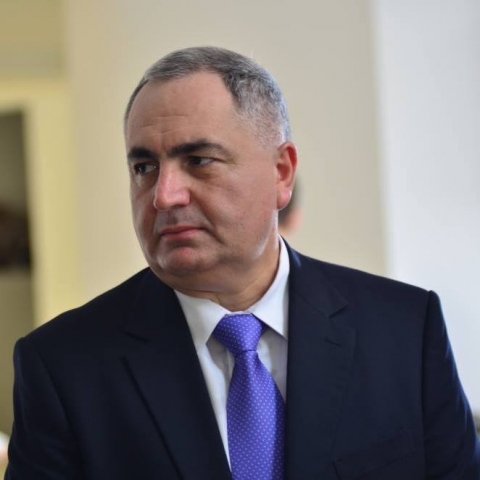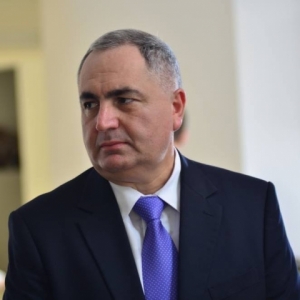NBG Presents 2016 Annual Report to Parliament
The NBG (National Bank of Georgia) presented its 2016 annual report to the parliament of Georgia.
Each year, the bank presents its annual reports to parliament, no later than May 1. The report is published in accordance with Articles 68 and 69 of the Fundamental Law of Georgia in relation to the National Bank of Georgia and concentrates on the "Report on Conducting Monetary and Foreign Exchange Policies", the "Report on the Condition of the Economy", the "Report on the Operational State of the Affairs for the Reporting Year" and "Financial Reporting" as approved by the auditors, in order to discuss “the frequent trends which the NBG had in the reporting period ”and assessing the processes both within the country and abroad, affecting and influencing the economic situation in Georgia and the “fulfilment of the goals set by the National Bank of Georgia. Georgia had 2, 7% economic growth in 2016 according to the report, with major growth in the service sector (1, 5%). However, the industrial sectors also contributed to economic growth with the construction sector showing 8, 1% growth in 2016, including both government financed infrastructural projects and private sector initiatives equally contributing to the increased economical figures. The trade sector is purported to have increased by 1, 8 % compared to the previous year.
The report states that investments were the driving force for economic growth in 2016, with infrastructure projects implemented by the Georgian government said to be playing the main role, while the private sector is reported to be the most active in the construction sector. As the report states, investments made by British Petroleum (BP) for the new pipeline construction were crucial in this regard. The export shares in 2016 are reported as having made a loss of - 0.1%. However, the year saw stable growth in tourists, which positively impacted service sector growth.
In 2016, the report says Georgian National Bank’s international reserves increased by USD 236 million, and, amounting to USD 2, 8 billion by December 31. As the GNB report states, a high level of dollarization remained the major challenge for Georgian economy in 2016. A low level of dollarization is regarded as an important component to maintain macroeconomic stability and fiscal sustainability. In 2016, the level of dollarization of loans was 65, 2%, while dollarization deposits were down - 71, 4%.
Together with the Georgian government, the National Bank of Georgia has implemented a 10 point ‘larization’ plan, to encourage the use of Georgian Lari on the market, the report states. “We need an institutionally independent, strong and effective National Bank and all these should be guaranteed by the Parliament of Georgia-said The Chairman of Budget and Finance Committee of the Georgian parliament”, Irakli Kovzanadze, Chairman of Budget and Finance Committee of the Georgian Parliament, commented on the National Bank of Georgia’s report. “the 2016 report of National Bank was presented in a very interesting way and there are lots of issues which are analyzed deeply and thoroughly. As you know, the reports of National Bank have not been discussed over previous years in The Parliament of Georgia. This is somewhat of a renewal of tradition, meaning that the report of National Bank should be heard and evaluated by the Parliament”. Kovzanadze stated. “Last year showed us that we have issues in two directions, these challenges are: monetary stability and steadiness of the financial-banking system. If the banking system situation is stable; in relation to inflation, then we may face some problems. Accordingly, it is important to know, that all attempts to refrain inflation somehow, should not be an obstacle for economic growth”. He was careful to point out “It is natural that Members of the Parliament had some questions; crucial ones too. I think that it was a very interesting discussion. The Budget and Finance Committee will have some recommendations, and we support the presented report to be approved” - Irakli Kovzanadze said.
By Nino Gugunishvili











